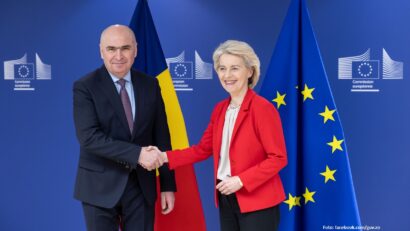Measures to improve voting abroad
After many problems with the voting process abroad in the first election round, steps are being taken to improve things in the second.

Bogdan Matei, 12.11.2014, 13:51
An unexpected and loud battle of press releases arose between institutions in Bucharest between the two rounds of presidential elections. The chaos that ensued at the polls abroad, where Romanian citizens eager to exercise their civic right to vote waited in line for hours and, in the case of many thousands, did not even manage to vote at all, sparked a conflict between the Central Election Bureau and the Foreign Ministry, which passed the blame on each other. Monday was the climax of the crisis.
Criticised by the opposition, the president’s office, the media and the Romanians abroad for his incompetence or ill will, Foreign Minister Titus Corlatean eventually resigned. He insisted that he made the decision so as not to be forced to break the law and invoked a ruling by the Central Election Bureau that did not confirm the existence of a legal basis to set up additional polling stations abroad.
On Tuesday night, the Central Election Bureau contradicted him once again and repeated in a press release that the management and creation of polling stations abroad is the sole responsibility of the foreign service. At the same time, the Bureau stuck to its guns, saying that there is no legal impediment to create additional polls for voters in other countries.
The hot potato is now in the hands of Corlatean’s successor, Teodor Melescanu. A career diplomat and a former head of the foreign intelligence service, he also ran for president in the first round before being again appointed foreign ministry after almost 20 years, at a very tense moment. Soon after taking office, he said his ministry’s cabinet is already doing its best to improve voting in the second round of elections. Teodor Melescanu:
“By simply evaluating some simulations we ran, the reduction in the time it takes for a citizen to vote, as a result of these measures, would allow at least a doubling of the number of people able to vote.”
One of the measures taken is making available on the Foreign Ministry’s website of a special form which voters can download and fill in before going to the polls, but which they have to sign and date before the voting staff. Also, the Ministry of Foreign Affairs has supplied a list of 800 employees available for assisting the voting staff, and the Central Election Bureau has already picked 120 of them. Each polling station abroad will have seven voting booths and seven stamps, the maximum allowed under the law.






























